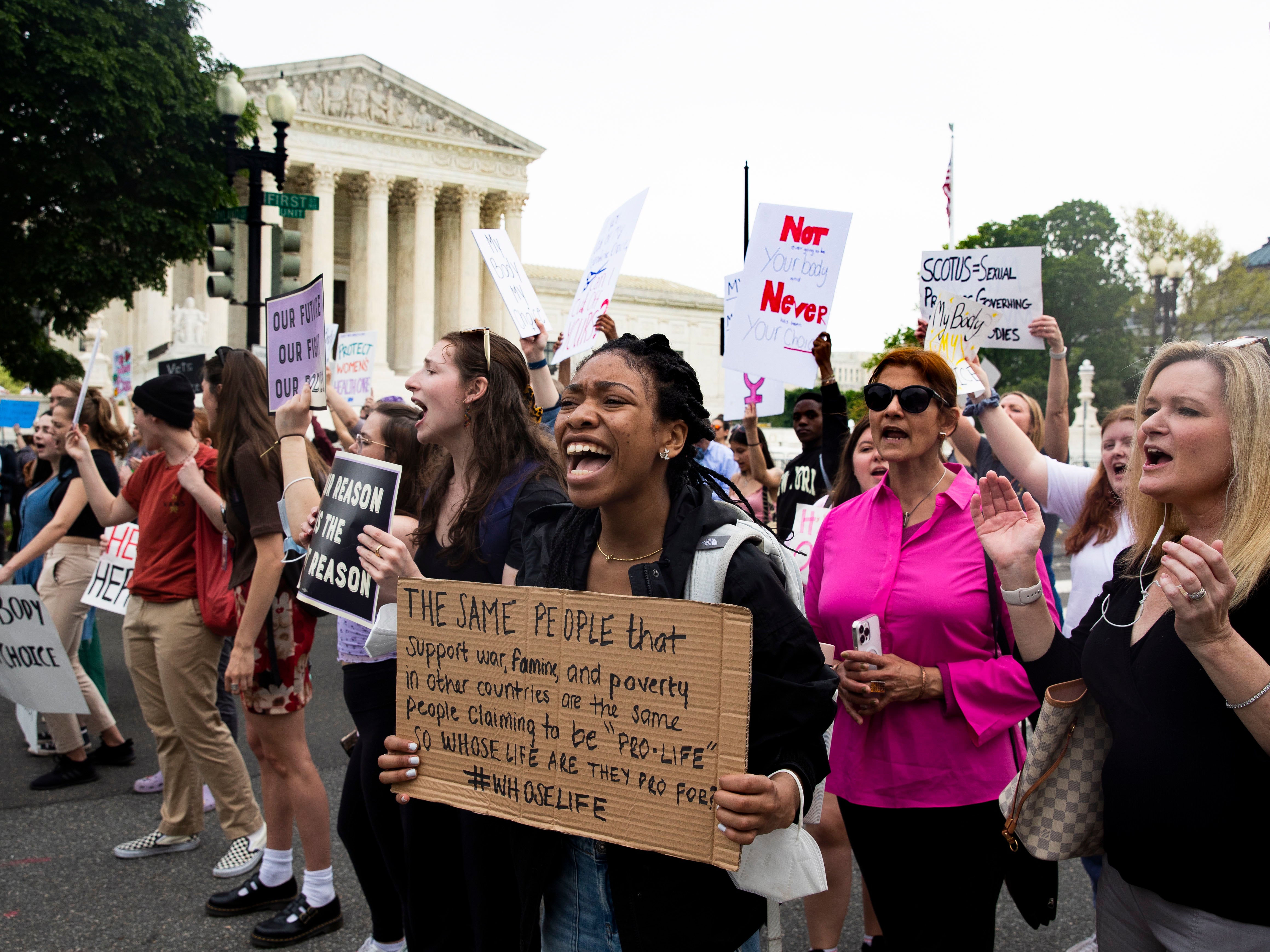Roe v Wade: I’m an adoptee – adoption is not a ‘simple’ solution to abortion
It is essential that we recognise the trauma of forcing people to carry pregnancies to term. If this becomes the precedent, we’ll turn into a society that is no better than ‘The Handmaid’s Tale’


Your support helps us to tell the story
From reproductive rights to climate change to Big Tech, The Independent is on the ground when the story is developing. Whether it's investigating the financials of Elon Musk's pro-Trump PAC or producing our latest documentary, 'The A Word', which shines a light on the American women fighting for reproductive rights, we know how important it is to parse out the facts from the messaging.
At such a critical moment in US history, we need reporters on the ground. Your donation allows us to keep sending journalists to speak to both sides of the story.
The Independent is trusted by Americans across the entire political spectrum. And unlike many other quality news outlets, we choose not to lock Americans out of our reporting and analysis with paywalls. We believe quality journalism should be available to everyone, paid for by those who can afford it.
Your support makes all the difference.After the supreme court leaked a draft opinion that suggests that they plan to overturn Roe v Wade, the world has focused on what this would mean for women’s rights in America. As we face this pivotal moment, I urge people to consider why adoption is being promoted as the solution despite the fact that adoption agencies are struggling throughout the country to provide infants for couples looking to adopt.
At one point during the initial hearing, Supreme Court Justice Amy Coney Barrett questioned if safe haven laws could be the solution to what was referred to as forced pregnancies in the two key abortion cases. Safe haven laws or “Baby Moses Laws” allow parents to remain anonymous and protected from criminal liability for relinquishing their babies to a safe haven.
It is essential that we recognise the trauma of forcing people to carry pregnancies to term and the issue with promoting adoption as the “simple” solution to parenting. If Barett’s views were to become the precedent for women and pregnant persons who do not wish to carry a child, we are turning into a society that is no better than The Handmaid’s Tale. We must consider the consequences of how the United States’s previous stance on abortion threw us into the Baby Scoop Era, where 1.5 million pregnant women and girls were sent to maternity homes to remain pregnant in secret until the baby was born and placed into adoption whether the mother approved or not.
Annual adoption numbers in the States have plummeted from 175,000 in the 1970s to around 125,000 in recent years. With over a million families looking to adopt (mostly infants) it is a recipe for disaster for this struggling business. Adoptive parents in the US typically pay between $20,000 to $45,000 for domestic private adoptions and between $15,000 to $40,000 for independent adoptions, while foster care adoptions are generally much less. We are facing an era where those in positions of power are pushing adoption for questionable reasons: a Supreme Court Justice who benefited personally from adoption is the perfect example of how white saviorism and toxic positivity in the adoption industry can encourage unethical policies and laws.
If we think of adoption as the solution to unwanted pregnancies and forced parenting, we need to consider that while previously there was a stigma surrounding unwed motherhood that influenced many pregnant persons to place their child for adoption, our society has since changed and more and more unmarried women are choosing to parent. When suggesting that women carry to term, place their children for adoption and then go about their lives, we are also ignoring the systemic racism in our country that targets Black and Brown people. Over 70 per cent of adoptive parents are white and the majority of children adopted are Black, Indigenous or persons of colour.
When social support programs like WIC, SNAP benefits, medical insurance and paid family leave are not easily available to certain populations, they are more likely to struggle with an unexpected pregnancy. Of those living below the poverty line, 8.1 per cent are white Americans, 10.1 per cent are Asian, 17.6 per cent are Hispanic, and 20.8 per cent are Black. And if we consider the premise that adoption promises a “better life” for children, it is not difficult to see which populations of people in the United States will struggle and feel more pressure to place children for adoption.
To keep up to speed with all the latest opinions and comment, sign up to our free weekly Voices Dispatches newsletter by clicking here
To suggest safe haven laws as the optimal solution, we are also ignoring the trauma of placing a child for adoption and the overarching effect that it will have not just on the birth parent, but current or future siblings, grandparents, and other family members. Adoption does not erase a child’s or parents’ genetic and biological desire to connect with not only their family members, but their culture as well. It does not erase the pain of a birth parent being separated from their flesh and blood. It does not negate the risk of pregnancy and birth complications that Black and Indigenous women are more likely to die from.
As an adoptee I have felt the trauma of not just being placed for adoption from a country that banned abortions, but the intergenerational wounds of my birth mother placing not just one, but three of her children for adoption. Abandonment, (or more gently put, placement of a child for adoption) is a traumatic event for children that can jeopardize a child’s development. It can also deeply wound families. From my birth mother, to myself, to my half-siblings that were adopted into a different family, to the children my birth mother parented, we have all been deeply affected by adoption.
It is time we opened our eyes to the unethical system of adoption, and stop suggesting it as a bandaid for much larger systemic issues in our country and instead support social programs that will provide families with affordable food, shelter, and medical care and women with more options.
Join our commenting forum
Join thought-provoking conversations, follow other Independent readers and see their replies
Comments